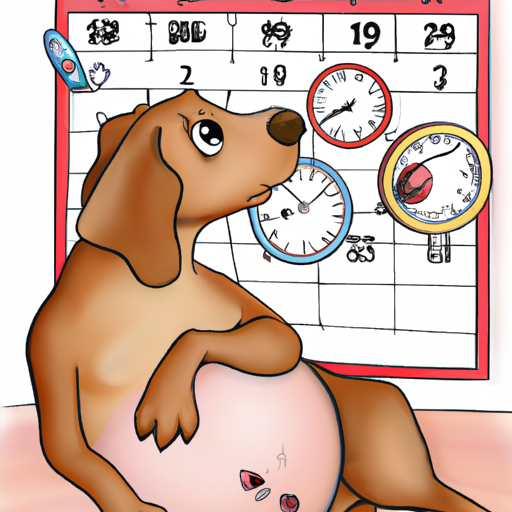As a dog owner, one of the most exciting times is when your beloved pet is expecting. It’s a time filled with anticipation, preparation, and probably a lot of questions. One of the most common inquiries is, “how long does dogs carry puppies?” It’s a simple question with a fairly straightforward answer, but there’s a lot more to canine pregnancy than just a timeframe. This article will delve into the specifics of a dog’s gestation period, the stages of pregnancy, signs to look out for, and how to care for your pregnant pooch.
Table of Contents
- Understanding Canine Pregnancy
- The Stages of Canine Pregnancy
- Signs of Pregnancy in Dogs
- How to Care for a Pregnant Dog
- Frequently Asked Questions
Key Takeaways
- The average gestation period for dogs is about 63 days, but it can vary slightly.
- Pregnancy in dogs is divided into three stages, each with unique signs and symptoms.
- Recognizing the signs of pregnancy in your dog can help you provide the best care.
- Providing proper nutrition, regular vet check-ups, and a safe environment is crucial during your dog’s pregnancy.
Understanding Canine Pregnancy
The gestation period, or the length of pregnancy, in dogs typically lasts from 58 to 68 days with an average of about 63 days. This is considerably shorter than the human gestation period of approximately 280 days. However, this duration can vary depending on the breed and size of the dog. Larger breeds tend to have a longer gestation period when compared to smaller breeds.
The canine reproductive cycle is divided into four stages: proestrus, estrus, diestrus, and anestrus. The actual pregnancy occurs during the diestrus stage when the dog is receptive to mating. You can learn more about the canine reproductive cycle here.
The Stages of Canine Pregnancy
1. Early Stage (Days 1-21)
During the early stage of pregnancy, your dog may not show any obvious signs. Some dogs, however, might experience morning sickness similar to humans. This can include a slight decrease in appetite and occasional vomiting. The embryos begin to develop in the uterus during this period.
2. Middle Stage (Days 22-45)
The middle stage is when the embryos start to take shape into puppies. This is also when your vet can confirm the pregnancy through a variety of tests. An ultrasound can be done around day 25, while a blood test can be taken around day 30. You can learn more about dog pregnancy tests here.
3. Late Stage (Days 46-Birth)
In the final stage of pregnancy, the puppies continue to grow and develop. Your dog’s belly will become visibly larger, and she may start to produce milk. This is also the time to prepare a whelping box for your dog to give birth in. You can learn about preparing for the birth of puppies here.
Signs of Pregnancy in Dogs
Aside from an increasing belly size, there are several other signs of pregnancy in dogs. These can include:
- Changes in appetite
- Increased urination
- Behavioral changes
- Enlarged or discolored nipples
- Weight gain
- Decreased activity
- Nesting behavior
How to Care for a Pregnant Dog
Caring for a pregnant dog involves providing a balanced diet, ensuring regular exercise, scheduling vet check-ups, and creating a safe and comfortable environment. It’s important to monitor your dog’s health closely during this time and provide any necessary medical care. For more details on caring for a pregnant dog, you can read this guide.
Frequently Asked Questions
1. How long does a dog carry puppies?
The average gestation period for dogs is about 63 days, but it can vary from 58 to 68 days.
2. How can I tell if my dog is pregnant?
Signs of pregnancy in dogs include increased appetite, increased urination, weight gain, behavioral changes, and an enlarged belly.
3. How can I care for my pregnant dog?
Proper nutrition, regular vet check-ups, and a safe, comfortable environment are key to caring for a pregnant dog.
4. Can I prevent my dog from getting pregnant?
Yes, spaying is the most effective way to prevent unwanted pregnancies in dogs.
In conclusion, understanding the duration and stages of canine pregnancy can help ensure that your dog gets the care she needs during this special time. It’s important to provide a balanced diet, regular veterinary care, and plenty of love and support. And of course, the best part is welcoming a litter of adorable puppies into the world!



